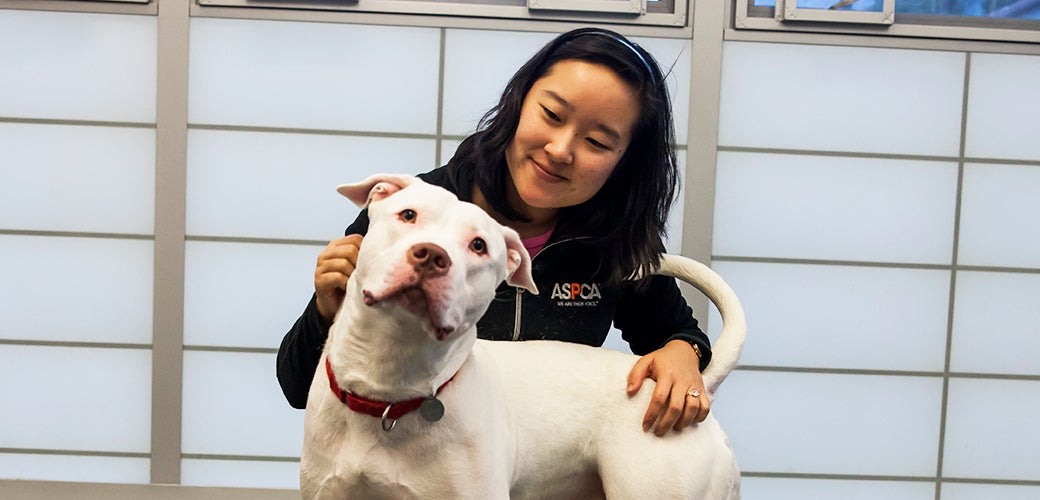New dog owners often face a variety of behavioral issues with their beloved companions. From excessive barking, to destructive chewing, it can be difficult to know how best to address these behaviors.
But there are tips and techniques that can help alleviate or even eliminate some of the most common issues. In this article we look at advice from experts on how new dog owners should approach addressing behavioral problems in order to ensure a healthy and happy relationship between them and their pet.
Establish Rules and Boundaries

As a new dog owner, establishing rules and boundaries is key to addressing common behavioral issues. You should start by defining the areas of the home where your pup is allowed- this will provide them with a sense of security and create an environment in which they understand what is expected from them.
Additionally, its important to set clear expectations for how you would like your dog to behave; consistent reinforcement of commands such as sit or stay can help build good habits over time. Its also important that you establish consequences for bad behavior right away so that your pup knows when they have crossed a line.
Remember, consistency is key! Finally, reward positive behaviors with treats or verbal praise- this will reinforce good habits and make training more enjoyable for both you and your pet.
Monitor for Early Warning Signs of Anxiety or Aggression

As a new dog owner, it is important to monitor your pups behavior for early warning signs of anxiety or aggression. It can be difficult to recognize the subtle changes in your pet that indicate they are struggling with these issues.
Pay attention to any sudden shifts in their attitude such as an increase in barking, growling, or snapping. If you notice any of these behaviors persisting over time, take action immediately by seeking professional help from a veterinarian and/or animal behaviorist.
Additionally, look out for physical cues such as cowering when approached, excessive panting and lip licking which could all signal feelings of fear or unease. With proper care and support from specialists you will be able to address any behavioral issues quickly before they become more serious problems down the road.
Exercise Your Dog Regularly

Regular exercise is one of the most important things for new dog owners to consider. Not only does it help with keeping your pup healthy, but it also helps prevent behavioral issues such as excessive barking or destructive chewing. Having a daily routine that includes regular walks and playtime will not only provide physical stimulation for your pet, but mental stimulation as well.
It can give them an outlet to expend their energy so they don’t resort to acting out in unwanted ways. If you have limited time in the day, try splitting up activities into smaller chunks throughout the day – even short bursts of activity can make a world of difference!
Avoid Punishment-Based Training

When training your new dog, it is important to avoid punishment-based methods. Not only are they outdated and ineffective, but punishing a dog can create an unhealthy relationship between you and your pet.
Instead of resorting to physical or verbal corrections, use positive reinforcement techniques such as providing rewards when the desired behavior is displayed. This will help emphasize what behaviors are good and build trust with your pup instead of fear.
Positive reinforcement also allows for more flexibility in teaching new skills since dogs learn better when they feel safe and secure. In addition to being more effective than punishment-based training, positive reinforcement helps foster healthy relationships with your canine companion that will last throughout their lifetime!
Seek Professional Guidance When Necessary

When it comes to addressing common behavioral issues in new dog owners, seeking professional guidance is often necessary. Consulting with an experienced veterinarian or canine behaviorist can help diagnose any underlying medical issues that may be causing the behavioral problem and provide tailored solutions for dealing with it.
In addition, a trainer will be able to give you advice on how best to direct your dogs energy and equip you with techniques such as positive reinforcement training to modify their behavior. It is important not to wait too long before getting support; doing so could prolong the issue and lead to more severe problems down the line.
Conclusion

.
New dog owners should have patience and persistence when addressing common behavioral issues with their pet.
The right combination of positive reinforcement, consistent rules, proper socialization and a good dose of love can help new dog owners to bring out the best in their pup. Dog training Greenwood also provides helpful tips and techniques for managing canine behavior problems. With the right advice and guidance, new owners can look forward to many happy years with their furry friend!


